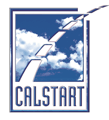CALSTART Begins Work on Plan for Zero-Emission Corridor
Along Eastern Seaboard
DOE-Funded Study will Optimize Investment for Electric and Hydrogen Truck Infrastructure
New York, NY – CALSTART, a mission-oriented industry nonprofit organization, announced today the launch of a groundbreaking project to guide investment in commercial medium- and heavy-duty (MHD) zero-emission vehicle (ZEV) infrastructure along I-95, one of the nation’s most heavily traveled freight routes. The East Coast Commercial ZEV Corridor project will incorporate input from fleet operators, the charging and fueling industry, utilities and communities to determine the most equitable and efficient path forward to support MHD ZEV deployment.
Funded by a $1.2M grant from the Department of Energy, the two-year initiative will define the locations, contributors, and processes that will result in an unprecedented, advanced technology, zero-emission freight corridor up and down the Eastern seaboard. The CALSTART-led ZEV Corridor project will transform the I-95 thoroughfare from New Jersey to Georgia into a model of MHD ZEV efficiency, significantly improving the health and well-being of both drivers and the communities in and around the routes, as well as powering improvements and expansion across the industries that produce MHD ZEVs and their supporting infrastructure.
CALSTART has worked for decades with government, vehicle and infrastructure manufacturers, and fleets to put into place revolutionary clean-air regulations and to create the clean transportation industry necessary to meet them. CALSTART’s efforts have resulted in California leading the nation in zero-emission transitioning. Other states and organizations across the country are following quickly behind by following CALSTART’s and California’s model.
Electric vehicle adoption is rapidly increasing in the United States, as is the number of commercially available MHD ZEVs. Accelerating the transition from heavily polluting trucks to ZEVs is critical to delivering cleaner air and mitigating climate-change effects. Building out commercial charging and hydrogen fueling infrastructure along I-95 will spur clean-technology industry expansion and enable more fleets to make the shift to clean vehicles.
“The I-95 Corridor project, once completed, will put into practice the integration of zero-emission vehicles, infrastructure, and addressing climate-change issues that has been carried out in other areas of the country,” said John Boesel, president and CEO of CALSTART. “The successful implementation of this project will put to rest the unfounded concerns of zero-emission opponents by demonstrating that this technology is both economically feasible and a benefit to all.”
Those opposed to electrification of the nation’s freightways have identified the cost and time required to build out the required infrastructure as prohibitive factors. CALSTART, however, has already solved that issue. Its recently released report, Phasing in U.S. Charging Infrastructure, details an efficient, cost-effective and relatively rapid buildout of that essential infrastructure, describing a phased-in approach that will keep pace with the MHD ZEV transition. The phased-in approach, the rapidly expanding commercial availability of versatile MHD ZEVs, and CALSTART’s East Coast Commercial ZEV Corridor project will all work together to realize advanced, clean and quiet commercial trucking operations along the Atlantic seaboard.
CALSTART will perform their study with support from Momentum, TETC/I-95 Corridor Coalition, National Renewable Energy Laboratory (NREL), Georgetown Climate Center, and Clean Cities Coalitions from each state along the corridor.
A second study, led by National Grid with a similar DOE grant, focuses on the I-95 corridor from Maine to New Jersey, and will, in combination with CALSTART’s study, provide a comprehensive analysis of the planning and investment needs that will lead to the construction of this cutting-edge electrified commercial transportation conduit.
“Readying our grid infrastructure for electric trucks will require careful planning and close collaboration across state lines,” said Bart Franey, National Grid’s Vice President of Clean Energy Development in New York. “This DOE grant award brings the right stakeholders into the same room to chart a clear course for electric truck charging across the Northeast. This roadmap will inform efforts by states, utilities, and the industry leaders to create a seamless truck charging network across the region.”
About CALSTART
A nonprofit organization with offices in New York, Michigan, Colorado, California and Europe, and with partners world-wide, CALSTART works with more than 300 member company and agency innovators to build a prosperous, efficient, and clean high-tech transportation industry. We overcome barriers to modernization and the adoption of clean vehicles. CALSTART is changing transportation for good.
